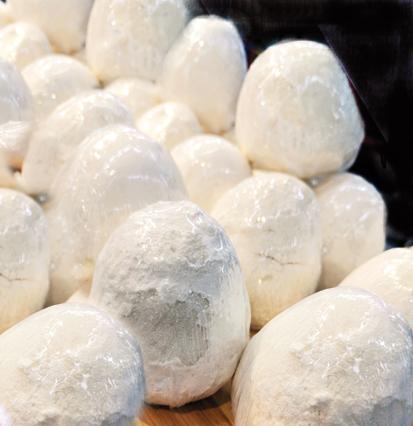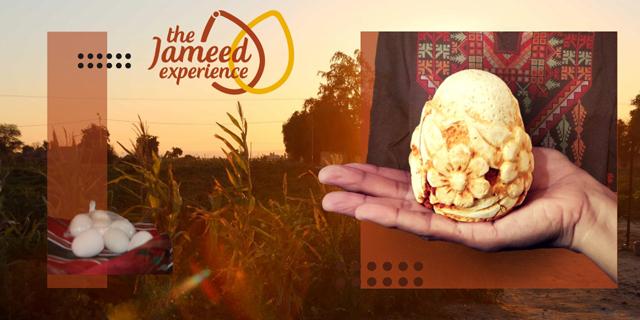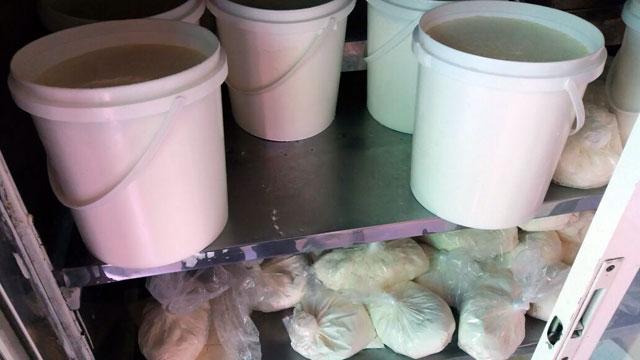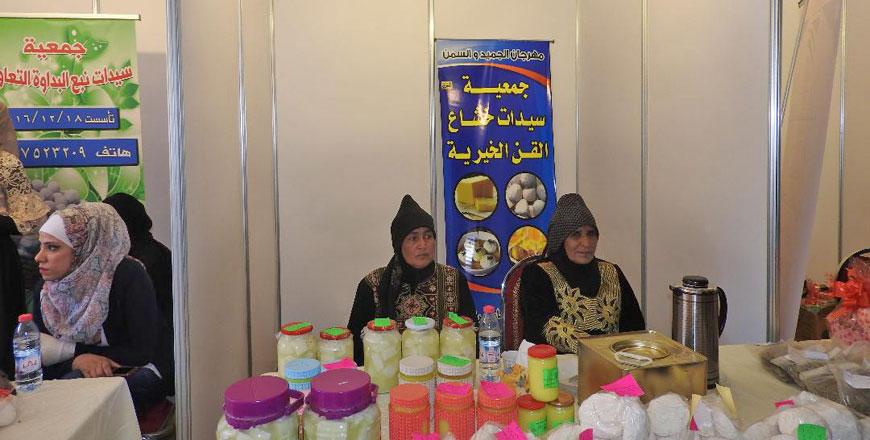You are here
Jameed making, a tradition handed down generations
By Rayya Al Muheisen - Apr 10,2022 - Last updated at Apr 10,2022

Jameed, which is also called ‘marees’, is the dried yoghurt used in Jordan’s national dish mansaf (Photo by Rayya Al Muheisen)
AMMAN — The jameed making process is considered a part of cultural heritage for many farmers and bedouins in Jordan, who continue to make it the traditional way.
Jameed, which is also called “marees”, is the dried yoghurt used in Jordan’s national dish mansaf.
“Making jameed is a part of our cultural heritage,” Abu Bader Rofou’, a farmer from the Tafileh Governorate, told The Jordan Times.
Abu Bader said he learned the traditional process of making jameed from his grandfather and has been making it for over half a century. His children have now mastered the process as well, he said.
Abu Bader said jameed is produced by straining heated buttermilk in cloth mesh bags, then salting the formed paste, and finally molding and drying the formed shape, which is usually a ball, in the sun.
He said that during the process they use a bag made of goat hide, also called “khorga”, which serves as a vat for milk collection and fermentation, while another smaller bag, called “shira”, is used to churn the fermented milk.
The same “khorga” is used throughout the season without washing, said Abu Bader.
“Jameed is mainly produced during the spring season when there is a milk surplus,” Nader Jazazi, a farmer from Salt who also produces jameed, told The Jordan Times.
Jazazi said jameed is preferably made from sheep and goat milk, but it can be made from cow and camel milk as well.
“There are two traditional ways to produce jameed from buttermilk,” Jazazi added.
He said the first involves straining the buttermilk through a fine mesh cloth without heating it, and the second involves heating buttermilk before straining.
“Jameed has become a symbol of the Jordanian cuisine”, Um Talal Tarawneh, a Jordanian homemaker from Karak, told The Jordan Times.
Tarawneh added that jameed is well-known for its unique character, aroma, taste and even aftertaste.
Jameed is available in almost any household in Jordan, is very nutritious and easy to store, since it can be stored as is, she said.
Related Articles
AMMAN — A Karak-based initiative seeks to harness the energy of young people to renergise the traditional jameed-making process.Jameed is th
JERASH — Among Jordanians, the city of Jerash is famous for its high quality, fresh dairy products, which are still prepared using tradition
AMMAN — “Jameed and Ghee Festival”, held on Friday, was more of a mix of preserving culture and enhancing sustainable development rather tha



















